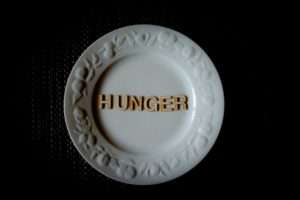The COVID-19 crisis and the associated loss of jobs have had a negative effect on the mental health of millions of people. But who’s suffering the most? The United States Census provides some insight on this important issue.
Jay Harold has a post that addresses the mental health aspect, “What’s Mental Health? 14 Early Warning Signs,” to provide useful information about mental health. Jay Harold thanks Brian Mendez-Smith and Mark Klee, who are survey statisticians in the Census Bureau’s Social, Economic, and Housing Statistics Division.Who’s Hurting the Most
Adults in lower-income and younger households who suffered job losses during the COVID-19 pandemic have less confidence they can pay the next month’s rent or mortgage on time and suffer more mental anguish and food insecurity1. This post ”Census Says COVID Broke Confidence of Adults” seeks to provide current and relevant information from a trusted source.
These findings come from an analysis of Household Pulse Survey data released Wednesday by the U.S. Census Bureau. Among adults living in households where someone experienced losses in employment income, the rate of adults who reported feeling worried, down, depressed or hopeless during the past week was higher for younger and lower-income households.
Paying Next Month’s Rent or Mortgage
Among households that experienced lost employment income, half of adults in households with an income of less than $25,000 had either “no confidence” or “slight confidence” in their ability to pay the next month’s rent or mortgage on time, compared with 8.4% of adults in households with an income of $100,000 or more.
Among respondents ages 25 to 39, 33.7% had either “no confidence” or “slight confidence” in their household’s ability to pay the next month’s rent or mortgage on time, while 12.2% of respondents ages 65 and above felt this way.
Worried, Depressed, or Hopeless
Among adults living in households where someone experienced losses in employment income, the rate of adults who reported feeling worried, down, depressed or hopeless during the past week was higher for younger and lower-income households.
For example, 41.8% of adults in households with an income of less than $25,000 reported an inability to stop worrying “more than half of the days” or “nearly every day” in the past week, compared with 23.8% of adults in households with an income of $100,000 or more.

Among adults ages 25 to 39, 36.6% reported an inability to stop worrying “more than half of the days” or “nearly every day” in the past week, while 21% of adults ages 65 and above reported this same level of worrying.
Adults in households with an income of less than $25,000 reported feeling down, depressed or hopeless “more than half of the days” or “nearly every day” in the past week 39.9% of the time, compared with 19.5% of adults in households with an income of $100,000 or more.
Among adults ages 25 to 39, 32.2% reported feeling down, depressed or hopeless “more than half of the days” or “nearly every day” in the past week, while 18% of adults ages 65 and above reported that same frequency.
Food Insecurity
Among adults living in households where someone experienced losses in employment income, 36% of adults in households with an income of less than $25,000 reported either “sometimes not having enough to eat” or “often not having enough to eat” in the past week, compared with 2.1% of adults in households with an income of $100,000 or more.
Among adults ages 25 to 39, 20.5% reported “sometimes not having enough to eat” or “often not having enough to eat” in the past week, while 5.8% of adults ages 65 or over-reported this same level of food insufficiency.
What Is the Household Pulse Survey?
The Census Bureau along with other government agency partners designed the Household Pulse Survey to collect and disseminate data in near real-time to provide vital insights into how American households are doing during the COVID-19 pandemic.

The first round of data was collected for the April 23-May 5 period. The most recent round was collected June 4-June 9. During this most recent round, the Census Bureau sent invitations to 979,236 households across America by email and SMS text message, and 83,302 households responded.
For a closer look at Census Household Pulse Survey data, see the Household Pulse Survey tables and Public Use File (PUF) microdata.
Jay Harold hopes you enjoyed this post, “Census Says COVID Broke Confidence of Adults” Click this link to get free Health and Wealth information to improve your life. Please share it and read more about Jay Harold here. Please take this advice from Muhammad Ali and give it back to others. “Service to others is the rent you pay for your room here on earth.”





